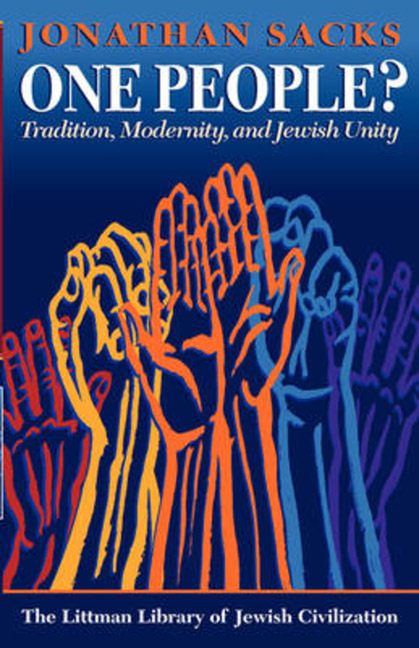Book contents
- Frontmatter
- Dedication
- Preface
- Contents
- Note on Transliteration and Place Names
- Abbreviations
- 1 The Crisis of Contemporary Jewish Thought
- 2 The Birth of the Adjectival Jew
- 3 Orthodoxy, History, and Culture
- 4 Orthodoxy and Jewish Peoplehood
- 5 Tradition and Diversity
- 6 Inclusivism
- 7 A Collision of Consciousness
- 8 Schism?
- 9 The Future of a People
- Bibliography
- Index
1 - The Crisis of Contemporary Jewish Thought
- Frontmatter
- Dedication
- Preface
- Contents
- Note on Transliteration and Place Names
- Abbreviations
- 1 The Crisis of Contemporary Jewish Thought
- 2 The Birth of the Adjectival Jew
- 3 Orthodoxy, History, and Culture
- 4 Orthodoxy and Jewish Peoplehood
- 5 Tradition and Diversity
- 6 Inclusivism
- 7 A Collision of Consciousness
- 8 Schism?
- 9 The Future of a People
- Bibliography
- Index
Summary
ALASDAIR MACINTYRE begins his revolutionary diagnosis of contemporary moral theory, After Virtue, with a chilling parable. Imagine, he says, that there is a widespread revolution against science. There is a series of ecological disasters. Science and technology are blamed. There is public panic. There are riots. Laboratories are burned down. A new political party comes to power on a wave of anti-scientific feeling and eliminates all science teaching and scientific activity. A century later, the mood subsides. People begin to try to reconstruct what was destroyed. But all they have is fragments of what was once a coherent scientific culture: odd pages from old books, scientific instruments whose use has been forgotten, bits and pieces of information about theories and experiments without the background knowledge of their context. These pieces are reassembled into a discipline called science. Its terminology and some of its practices resemble science. But the systematic corpus of beliefs which once underlay them has gone. There would be no unitary conception of what science was about, what its practices were for, or what its key terms signified. The illusion would persist that science had been recovered; but it would have been lost, and there would be no way of discovering that it had been lost.
What is conjectured in this parable is, MacIntyre argues, what has actually happened to moral thinking. The Enlightenment and the social processes which accompanied it succeeded in destroying the traditions to which the key terms of morality belonged and within which they had lucidity and coherence. The words survived-good, right, duty, obligation, virtue-but were now severed from the context which gave them sense. For they had belonged to coherent social orders in which people were shaped by a collective vision, in which there were social roles not chosen but given by birth and tradition, and in which there was a narrative continuity between generations and within individual lives. Those socially given shared meanings have now gone, to be replaced by a Kantian conception of morality as autonomous choice or a Nietzschean world constructed by individual will. The language of morality survives, but without the systematic corpus of beliefs which underlay them. ‘What we possess', says MacIntyre, ‘are the fragments of a conceptual scheme, parts of which now lack those contexts from which their significance derived.
- Type
- Chapter
- Information
- One People?Tradition, Modernity, and Jewish Unity, pp. 1 - 17Publisher: Liverpool University PressPrint publication year: 1993

